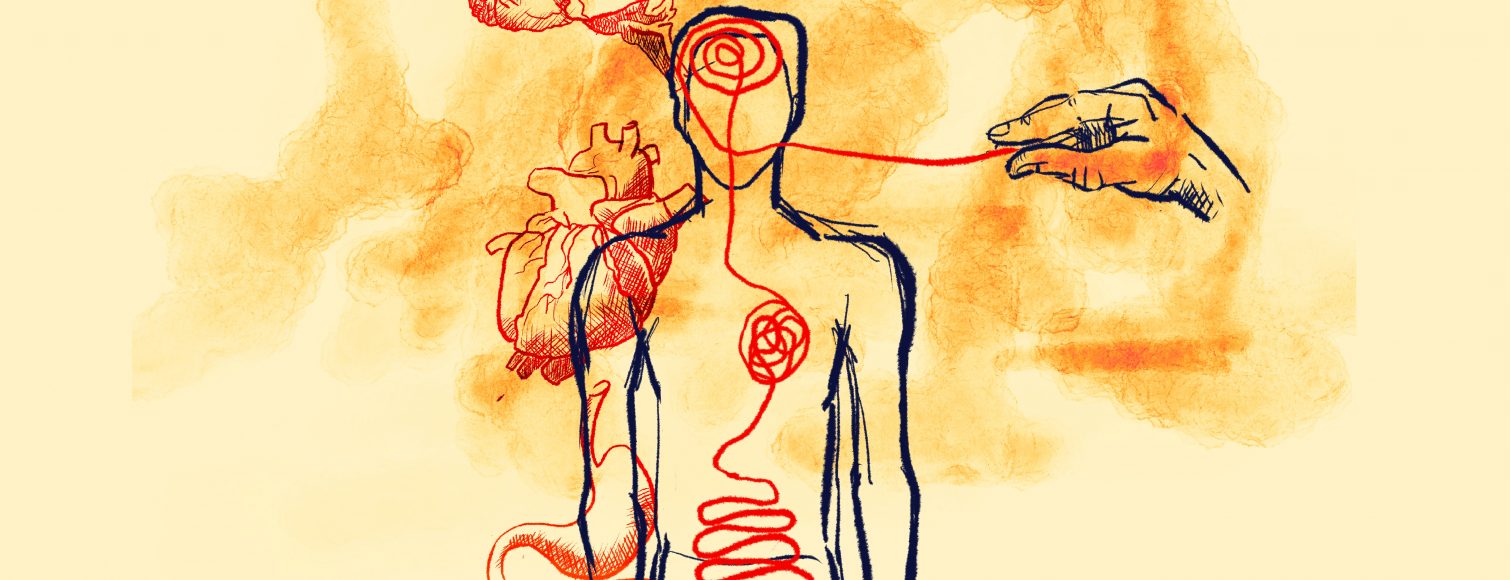Over the coming weeks, we will investigate the world of non-rational knowledge at several SG events. The world of intuitions, gut feelings, emotional intelligence, instinct, and so on. This is stuff we don’t usually learn about in school, perhaps because of our culture’s focus on the rational and the objective. But in a post-truth world, shouldn’t we be better educated on how the non-rational affects our lives?
In preparation for this series of events, SG program makers Sanne and Klaas tested each other’s thoughts and feelings about thoughts and feelings. A sneak peek at the minds of the program makers:
Klaas: why do you care about other people’s emotional intelligence? Or their intuition, instincts, etc?
Sanne: I think it is the way to connect, the way we build relationships. If I want to feel I am a part of something (a group, family, or community), I need to connect with others on the level of emotions and feelings. You can be part of a group through shared visions or theories of course, but when shit goes down, I need people to be there for me. They need to recognize my need, that’s when you’re emotionally connected. And being part of something, being recognized and seen, is a necessary ingredient for happiness, I believe.
Sanne: Emotions, feelings, and intuitions are often implicitly part of conversations and relationships. Do you dare to trust what you feel, even if it’s never been made explicit?
Klaas: Good question. I know that after making big decisions in my life based on intuition or feeling rather than logic, I’ve never regretted them. Regardless of the consequences. So my answer is yes, I trust what I feel. Because it somehow feels more true (to myself) than any mental gymnastics I might apply afterwards to determine what’s right or wrong. Can a feeling be wrong? I don’t know. I don’t pretend to be able to explain it rationally. But I guess that’s the point?
Klaas: Do you think our education teaches us enough about how to balance our rational and non-rational processes?
Sanne: Hell no. The focus is on the cognitive, other processes are to be developed anywhere else but during your education. I already see it happening with my son, who is almost six. He’s ahead of his age when it comes to cognitive skills, yet he’s not as quick with social and motor skills. But all the focus is on how far ahead he is cognitively. This pattern keeps repeating itself through high school and any education after that. If you don’t learn your emotional, spiritual or intuitive sides at home or among friends, you just won’t develop your emotional (or spiritual, ‘cause that’s a thing too) quotient very well.
Sanne: Do you think our education is the right place to learn these things? And if it’s not, where should we learn about this stuff?
Klaas: I think our educational institutions should aim to poop out whole human beings, not stunted, purely rational or purely irrational ones. The question is – what should that look like? Rationality and scientific thinking are presented as universal, but the personal is not. So how do you teach a group of individuals how to “listen to your gut”? Or emotional intelligence? The only way I know, in terms of education, is to take a broadly philosophical and anthropological approach. But you don’t necessarily get a lot of that in Delft, except at SG of course. Of course.
Join us for a deep dive into the non-rational. Check out our upcoming programme here.
April 30th – Existential Tuesday – Have you ever had an independent thought? – the Nook, TUD Library
May 14th – Existential Tuesday – Is everything somehow alive? – the Nook, TUD Library
May 21st – Existential Tuesday – Can you control your feelings with your thoughts? – the Nook, TUD Library
May 28th – Existential Tuesday – (How) Do you know what you really want in life? – the Nook, TUD Library
June 5th – VOX Book Club – We, by Yevgeny Zamyatin – the Nook, TUD Library
June 10th – SG Café Het buikgevoel (in Dutch) – Theater de Veste

